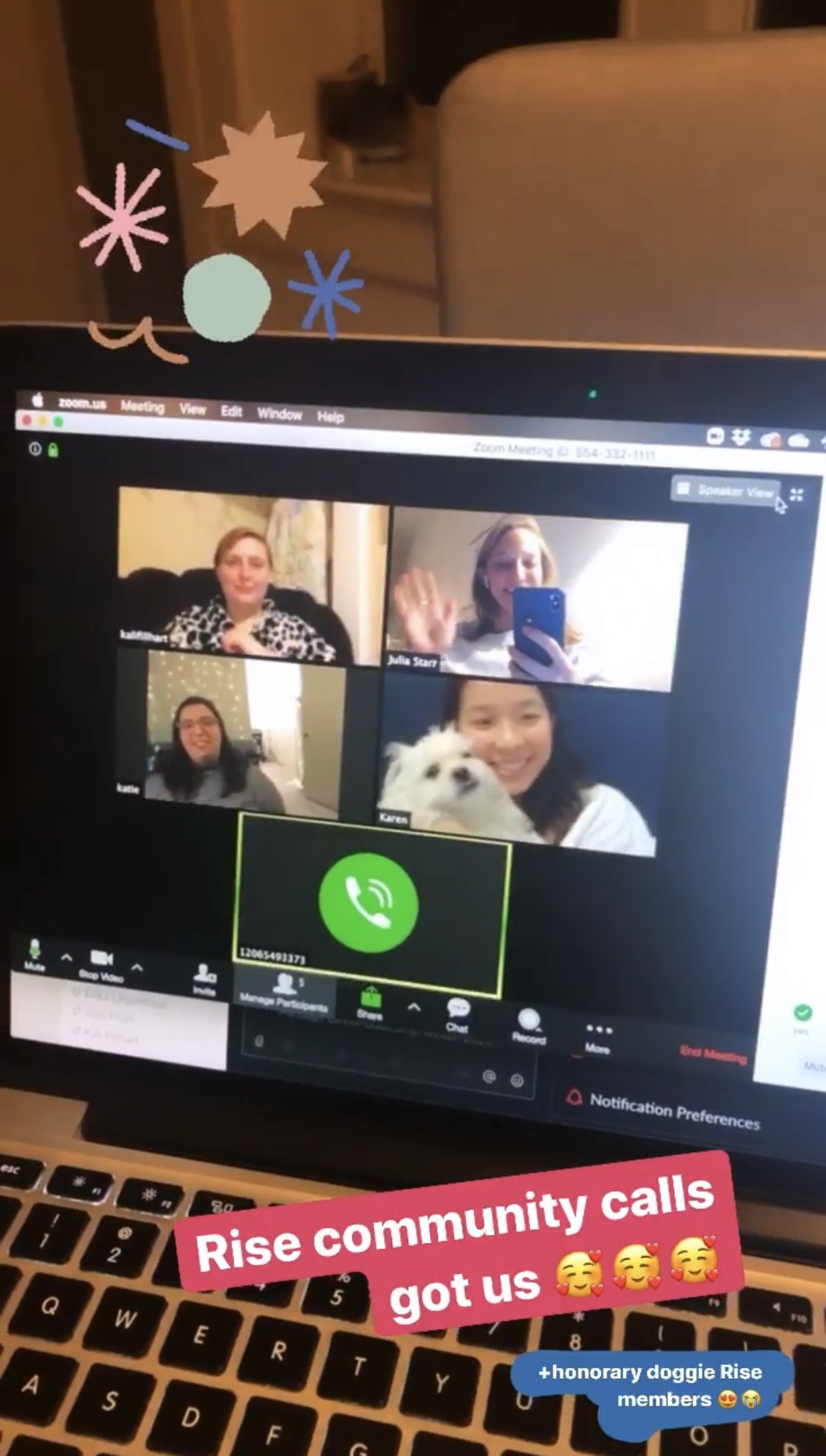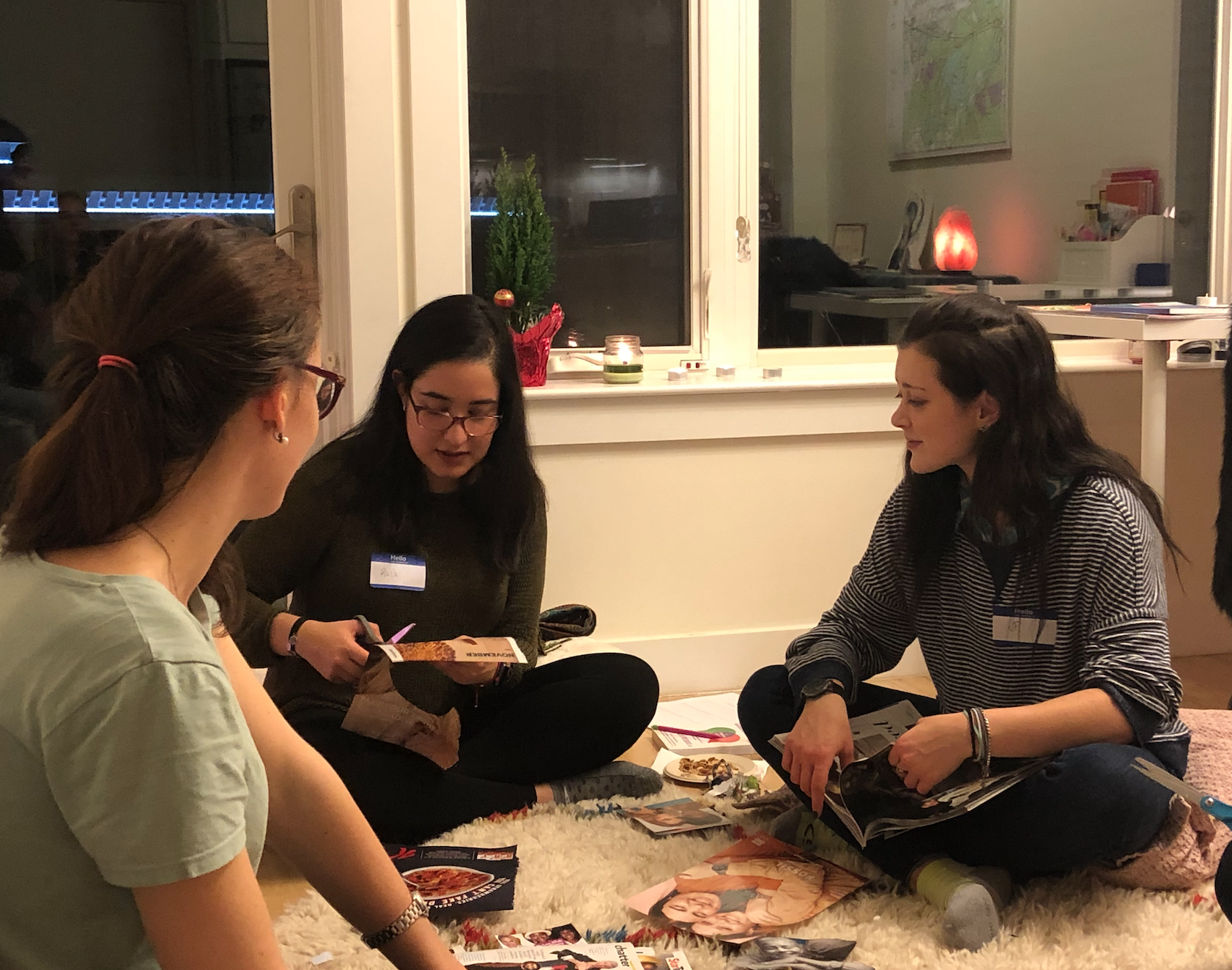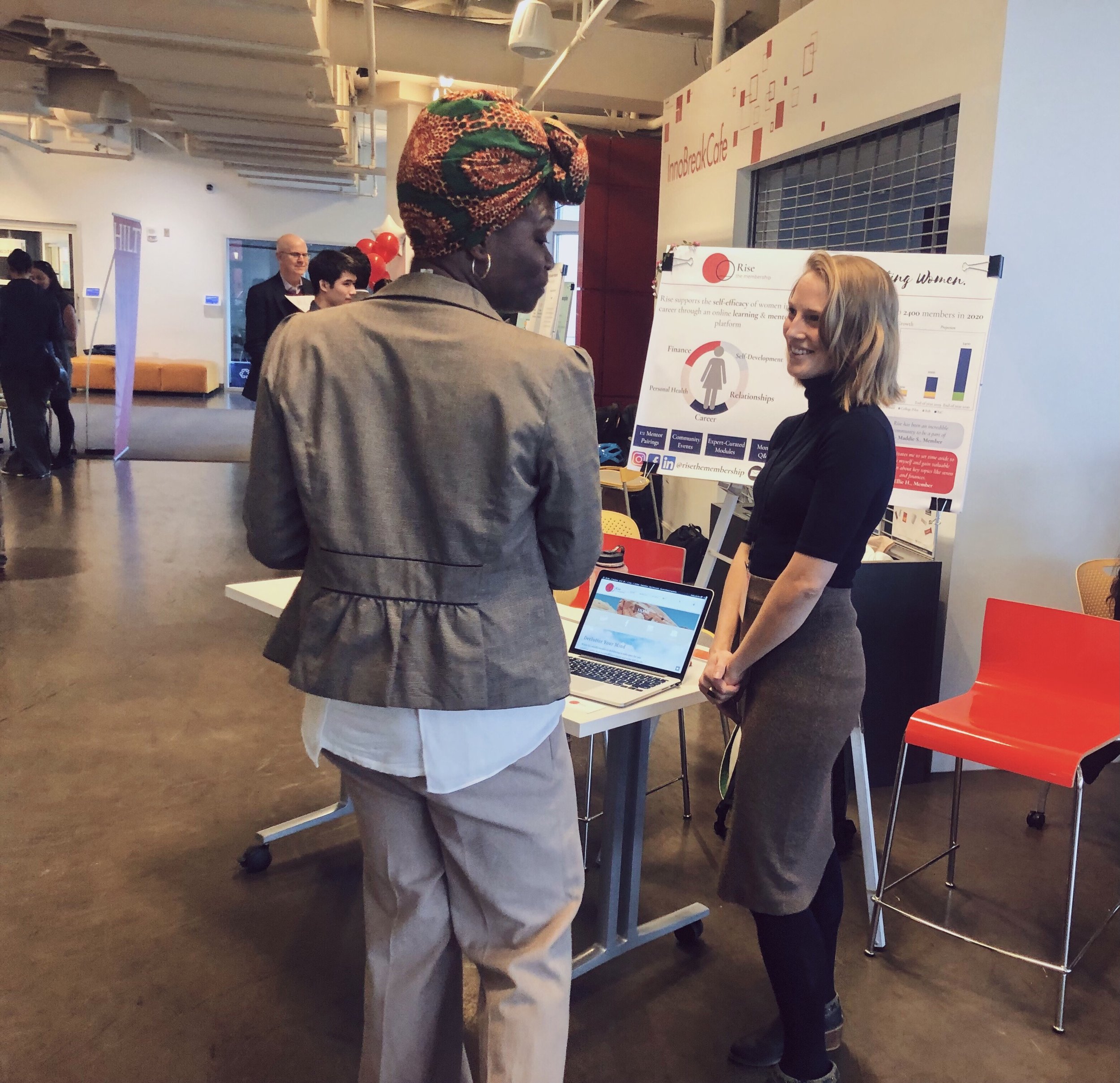On Endings
This post’s focus on endings should not shortchange Rise’s beginning or middle. Building and running Rise was a highlight of my adult life. The people that I met, from my teammates (shoutout to Emily, Kinsey, Winki, Julia, Narmeen, Hannah), my advisors (Libby, Jill, Rebecca, Scott, Thara, Howard, Brian, and many others), fellow LLX founders, OG Rise members and ambassadors (Karen, Kinsey, Shannon, Sofia, Ruth, Bella, Hannah, Erin, Holly, Bailey + more) and our incredible course creators (Brittan, Julia B., Taylor, Maddie & beyond), made the entire endeavor a life-changing experience - and I would do it again in a heartbeat, truly.
In the summer of 2020, 6 months into the pandemic, I decided to shut down a business, Rise. It was 2.5 years old, we had just completed the Harvard Innovation Labs competitive LLX incubator program, had a validated product and were driving revenue.
This post is not about the minutiae of business model, product innovation or people management - rather it’s about what I learned in two primary realms 1) building a community-based business and 2) how I (an individual trained to index my worth to external achievement, like many of us) decided to actively “fail” at something (my word, not yours). If you are left with specific curiosities, let me know and I’ll write a follow up.
The goal in publishing is twofold: normalize failure - *hellllooooo you gotta fail to succeed*, but this is still SO hard for many of us - and share the learnings I acquired on building community-based businesses, given this is or will be so central to many of your current or future businesses.
If you know me + Rise, skip this. If not, here is some helpful context: I am a life and career coach with a background in both management consulting and adult development psychology (pivoted from BCG to coaching through a Masters of Education focused on Adult Development Psychology at Harvard, & other things). I wanted to use what I knew about women’s experiences in male-dominated fields AND psychology + role modeling to innovate on how to increase retention and success for women in early career entering male-dominated fields. Rise was a peer and senior mentorship platform which connected local networks of women in early career… specifically, we ran a 3-month mentorship program, published monthly online courses in partnership with experts in the field (ex: managing your money, negotiating a raise, etc.), and hosted 10-person mini popup events in cities, facilitated by city-based Rise Ambassadors. When we “ended” we had ~750 members, 15 city-based ambassadors and a team of 5 (part time + me full time). We never raised money/took outside investments, were the recipients of ~7K in grant money, and were revenue-driving via a $12/month membership fee. I paid myself while building Rise through continuing to run my private coaching practice.
First, community-based businesses, what you should know.
*obviously this is one data point - validate with your own experience*
1. Human relationships cannot be automated
For us, this meant we didn’t have success in scaling our community until we got hyper-local. Our most successful IG story ad (which promoted membership drives) came when we targeted cities with messages like, “Hey Dallas, Rise is launching in your city!”. We also built the most buy-in from members who were able to attend an in-person city-based event, hosted by Rise Ambassadors (volunteers who were vetted by me, and supported with monthly “event boxes” which contained swag + event conversation guides).
2. Personality (in other words, energy) is your driver
People are sensitive, we’re empathic. A brand is made up by people and personalities, or at least perceived personalities. This might be obvious, BUT it cannot be overstated that getting comfortable with you (as the founder) or whoever will be the face of your brand, being hyper-visible and authentic will be required in order to attract and retain members. Be human, find other humans who have excellent energy, EQ, relationship and communication skills - your ambassadors (whether formal or informal) will make or break your product (in this case, your community). Use your spidey senses to say no to the people who aren’t the best fit for leading and representing your brand/community. Take all the help you can get AND be confident in the values that must be demonstrated by anyone representing you/your community.
3. It takes a sh*t ton of work
Take the analogue of building friends as an adult. There are a million other things you need to be doing, yet somehow you make time week after week to meet up with someone you.. met at the gym, found on Bumble BFF, sat next to in class 5 years ago and just moved to their city. It’s awkward, uncomfortable, and takes WORK to get to the point where you can call them up for a drink and feel like “friends”. This is the goal of your community - to make your members (subscribers, members, customers), feel like they know you and can “be honest” with you.. Relationships are built on honesty and vulnerability, and if that’s what you’re selling, you need to go through the work of following up, sharing yourself, creating environments for vulnerability, in an ongoing way over time, in order to create the high-quality product (community) you’re seeking. And that takes work. So yes, a strong community will pay dividends for your product and is an excellent (and necessary) investment in the longevity and success of your brand. And no, it cannot be manufactured or scaled in the way some other business models might.
Second, on deciding to quit.
My biggest fears were:
What will people think?
Have I wasted all this time?
Have I wasted the time of people I deeply respect and admire?
Does this mean everything I do will be a “failure”?
*does this mean that I am a failure in life at large?!* - eek!
Who am I letting down?
What kind of example am I setting for the women of our community?
Tactically what I did to help me make this decision:
A spreadsheet. I created ~3 different “futures” and modeled out the conditionalities (what would have to happen for them to be true), the revenue and profit potentials, my personal income potential, and the timing of all of the above.
Spoke to *just a handful* of people who I knew would have my personal best interests at heart. Some of these people knew the business model and potentialities, some of these people just knew/loved me.
Ignored advice from those who *if I was honest with myself* lived and made decisions in ways I didn’t resonate with - because their advice was different than those in #2 and initially was very confusing to my own understanding.
Laid out what mattered most to me - which was not wasting the work, effort and learnings. When that became clear I was able to enact a few things 1) become an advisor to several community and mentorship startups 2) pilot handing Rise off to a Rise ambassador (which has yet to land - if you’re reading this and want to give it a go lmk), and 3) finally, writing this piece.
Got painfully honest in what I wanted for my life - which was having much more time autonomy than building a scalable startup would allow. I wanted to be outside for a minimum of 2 hours a day, move to a mountain town, make more money in less time, and not manage a team of people.
How I feel now:
Sometimes, I’m very regretful that I didn’t push the business forward. I speak to a fellow founder on the phone, see a celebratory post, or have a former advisor check in… yes, sometimes I wish I had stayed the course.
Most of the time, I’m wildly grateful for ripping off the bandaid and moving on with my life and my current coaching business (which has paid off in dividends, in more ways than one).
When I subconsciously ruminate on the worst fears (everything I do will be a failure and I’ve let down people I love and respect) - I find data that contradicts that. I’ve had many successes and my relationships are intact.
Reading articles and quotes about how failure is a necessary component of success doesn’t help me all that much, if I’m being honest. However, one Medium article from a founder who laid out a similar reflection helped a smidge, knowing other founders who have shut down businesses or pivoted business models 180° has helped a smidge, and spending time coaching founders who are constantly doing this calculus has helped, a smidge.
In the same way, I hope that if you’re a founder or entrepreneur, this article will help you a smidge. I hope what I share can normalize things you’re experiencing, or provide valuable insight on how you can avoid some of my mistakes (particularly if you’re building a community-based business).
If you want to build a business and IPO and lead like a badass in that way, go for it. If you aspire to have an impact on one person, one town, one family, or no one at all - have at it.
Your brilliance cannot be defined by one creative impulse. I hope you give yourself the chance, over a lifetime, to discover all the ways you can live, work and play that make you feel like you’re discovering and loving more of yourself and more of the world.
For me, the above was facing my fears and felt like LIVING. For you, it might look completely different and that is a beautiful thing.
Cheers,
Julia










